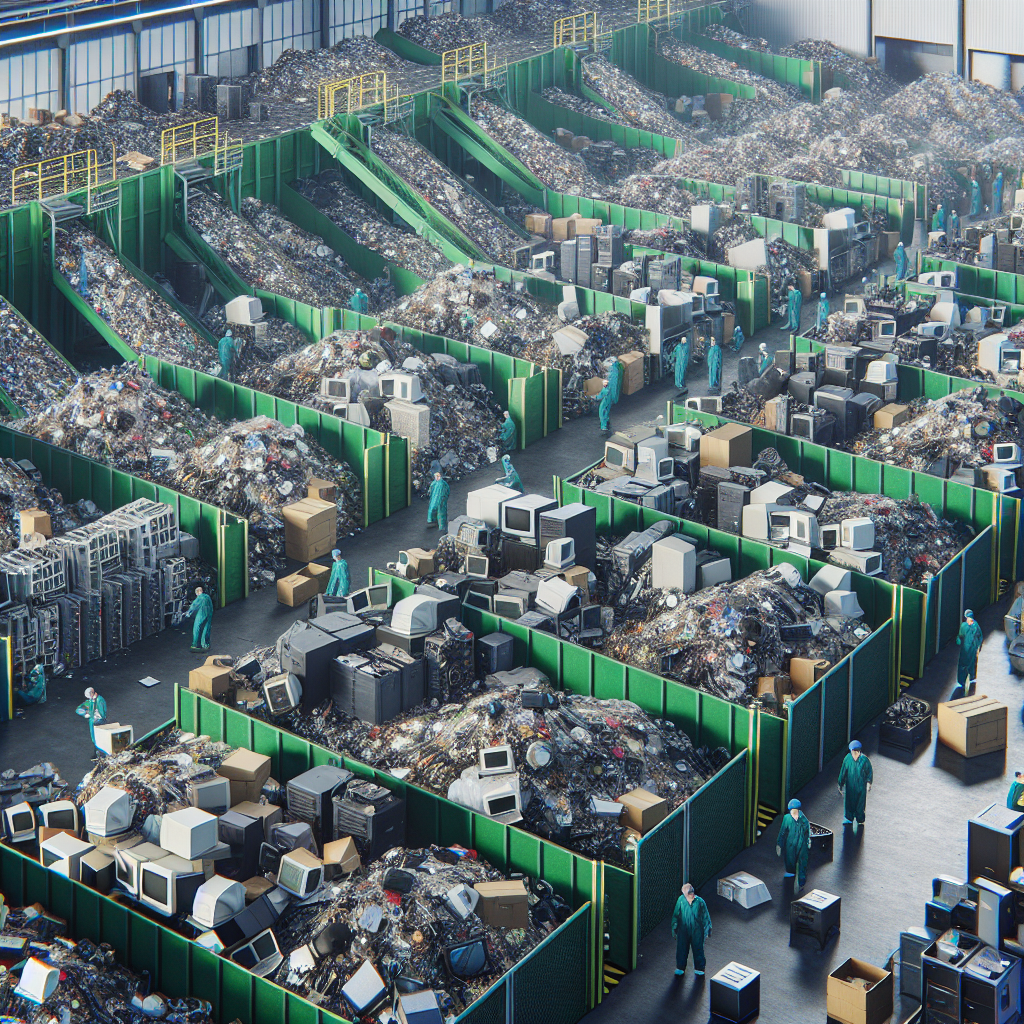Blog Ecobraz Eigre

Electronic Waste Collection for Companies (National): SLA, Volumes and Costs
Introduction to the Responsible Collection of Electronic Waste
The proper management of electronic waste is fundamental for compliance with the National Solid Waste Policy (Law No. 12.305/2010) and other Brazilian environmental regulations. Correct logistics and service level agreements (SLAs) ensure that technical disposal demands are met efficiently and safely.
SLAs in Electronic Waste Logistics
The SLA (Service Level Agreement) in electronic waste collection defines parameters such as maximum service time, collection frequency, minimum and maximum volume to be collected, as well as technical and safety requirements. Establishing clear SLAs is crucial to ensuring environmental and operational compliance, allowing for efficient monitoring and accountability of logistics providers.
According to regulations from the National Secretariat for Strategic Inputs and Waste (SINIR), service must meet minimum safety and traceability standards from collection to final disposal.
Volumetrics and Logistics Planning
To properly manage the collection of electronic waste, knowledge of the volumes generated is essential. Correct sizing directly influences the planning of routes, the definition of frequency and the allocation of appropriate equipment and vehicles.
Companies should consider the useful life cycle of electronic equipment and disposal projections to define monthly or annual quantities to be collected. Periodic reports help to adjust processes, in accordance with guidelines from CETESB for environmental management.
Costs Associated with the Collection and Disposal of Electronic Equipment
Costs for collection and disposal vary according to the volume, type, complexity of the waste and safety requirements. Factors such as specialized transport, proper handling, data de-characterization and environmentally appropriate disposal have a direct impact on the budget.
In addition to operating costs, compliance with legislation such as Law No. 12.305/2010 and state environmental standards requires investment in certified and monitored processes. For sensitive data, it is recommended to use HD sanitization processes to ensure information security and legal compliance.
Importance of Hiring Specialized Collection Services
Hiring specialized collection companies that offer defined SLAs and comply with technical and environmental standards ensures traceability and minimizes the risk of environmental and legal liabilities. Professional services follow national guidelines and promote proper disposal, avoiding environmental impacts and reinforcing social and environmental responsibility.
We recommend using e-waste collection platforms for scheduling, ensuring transparency, documentary records and proof of the process.
Legal and Regulatory Considerations
The National Solid Waste Policy (PNRS) and related regulations define principles for the management of electronic waste, including shared responsibility for the life cycle of products. Strict control via SLA and documentation of volumes and costs is required for auditing and compliance purposes.
Complementary legislation, such as the standards of the SINIR and state regulations reinforce the need to comply with good disposal and recyclability practices, aligning processes with sustainable development.
Conclusion
Efficient e-waste management based on clear SLAs, analysis of the volume generated and strict cost control contributes to environmental responsibility and information security. Hiring specialized services and complying with current legislation are imperative for organizations committed to sustainability and legal compliance.

Deixe um comentário
O seu endereço de e-mail não será publicado. Campos obrigatórios são marcados com *